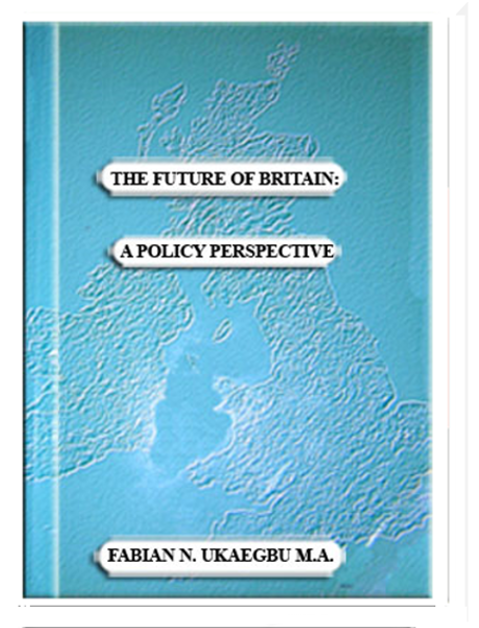
No longer an Island but not fully mainland Europe, with population from 234 countries, what was Britain last 500 years, what is she now and what will she be in the near future? What policies will favour Britain nationally and internationally in this millennium, will it be monistic or dualistic? What policies will suit the legal, moral, human, educational, social and welfare needs of the 60 millions peoples at a time? Does scientific civilisation fully complement humanism? What are the dangers of producing people that cannot observe the customs of the land? Has our early surrender to indiscipline done the society any good? What will happen to Britain when or if what motivated the fathers does not motivate the sons? Why is legal process alone failing the society? Is morality a subject or object of life? Why has no law fully secured human conformity? What is the nature of ignorance and freedom? Why is principle of reduction in crime control preferred to eradication? Justice or punishment, imprisonment or reformation, what is the nature of any law that promotes maximum order and disorder at the same time? (Sections 1 & 2).
Are our MPs under or over used? Could they play more roles in their constituencies than in the House of Commons? The post-modern Britain, will it favour joint decision of the elected - the governors with the voter/electors - the governed or despatches by the elected members? When will 'Best-Value' be applied between the elected and the electors, the voters? (Sections 3 & 5).
What is the church and what power has the church? Is the church truly to be blamed for moral decay or decline of the society? Can the Head of state temporal be the head of the spiritual? The Magisterium, what future has it? What transformation does the post-Cold War Britain need? Who is responsible for the moral decay of the society? (Sections 5 & 7).
Has the Pride of Britain, the Monarchy outlived its usefulness? The law of evolution is that as people live and use resources produced by others, one day, they will be required to produce for themselves and others, but what will happen if we produce people who are not capable of producing? The height of racism in the land was reached in 1976 when it gained a Royal assent, what is the best way to manage the British population of more than 60 million people? How best can Britain be managed to deal with the post-modernisation and post Cold-War developments? The goodwill of the governor and the governed, where is it based and how best can it be fostered? What is the best way to handle and deal with the refugee and asylum problems? Is the UN's law of 1951 on these issues still valid? Is the British Commonwealth now a thing of the past? (Sections 4 & 5).
What are the implications of the 11 September 2001 attack on America and on nationalism? Is there no implication in dualistic approach to nationalism? Why is the CIA able to gather information about other nations but was unable to gather information to avert the attack? If we fail nationally, how can we measure our success internationally? Have we not seen enough conflicts to remodel our national approaches? (Section 5).
How best will Britain be a member of Europe? Will full membership spur or break Britain? The gaps between the rich and the poor, how can they be narrowed? How best will Europe be transformed? Does it favour top-down - governor led, bottom-up - voters led or a mixture of the two? What is the fate of fragile Europe amid national weaknesses and international threats? (Sections 5 & 8).
What convinced many to believe that Adolf Hitler was the first Head of a modern technological state? Is it really possible to focus the power of control on a single point? The monstrous nature the communication technologies, have we lost the power of control? Can we do without the Press, how honest and free should the Press be? (Section 5).
Why has law neither completely calmed down human nor secured his full conformity? Has an individual a part to play in his freedom? How best could this be approached? If the society is to be recovered from moral decay, there must be willing individuals to lead in this. Why is your membership of a state an obligation and not a mere stake? (Sections 6 & 7).
The Future of Britain: A Policy Perspective, by a futuristic thinker looks at Britain's evolution along the above questions. As a Post-Cold War approach to the New World Order, it focuses on the New Britain as a process of ascertaining and determining what Britain needs to do well in this millennium. It is offered on guarantee of full satisfaction or refund

Fabian N. Ukaegbu was born in Eastern Nigeria. He received his basic education there before travelling to the United Kingdom for further education. He qualified in Marketing, Management, Accountancy and International Relations/Diplomacy. He worked for six and the half years as a Consular Officer in the Nigeria High Commission in London and has worked also as a finance officer for 14 years with the London Borough of Hackney.
He is a prolific writer as indicated by the titles below
His Other Titles Include-